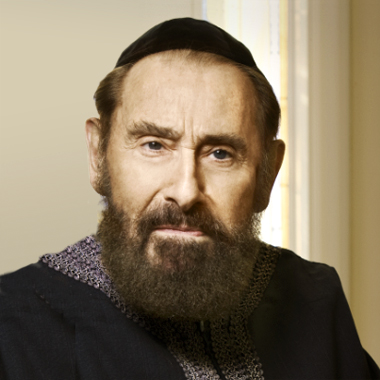

Jethro gave advice to Moses, the leader and consequently the judge of the people of Israel. He noticed that everyone who had a question would come to Moses and suggested that Moses appoint upper courts and lower courts, much like we have today. The Bible says that Moses listened to Jethro and did everything he said. Why does this section about Yitro (Jethro) the father-in-law of Moses, precede the giving of the Ten Utterances and how is it related?
The Zohar, which contains a multitude of layers of understanding, gives a lengthy discourse relating to what is presented here, and has repeatedly told us, if we read the story of the Bible and assume that the message is about what is presented at the literal level then we have missed the point. The Zohar goes on to say that when Yitro had this discussion with Moses, it was not a discussion about Moses being too tired or of working all day. Instead, it was about what was revealed through the two words of Yitro: ve’atah techezeh (“and you will see”), in reference to “you choose people who fear God.” But how do we do that; how do we recognize these people? When we see someone who is beautiful or handsome, we think they must be brilliant, and if they are ugly they must be stupid. If they are poor they are stupid and if they are rich they are smart. The Bible does not say choose honest people yourself. How do we know in advance who will take a bribe, who will favor their cronies? The Zohar has 60 pages worth of discussion about these two words.
Yitro was obviously a high soul that he could provide advice to Moses. But how could it be? He was not an Israelite and was once an advisor to Pharaoh and did not say nice things about the Israelites. Regarding this section, the Zohar takes from the phrase in Exodus 18:21 “and you will see,” which involves the entire study of how we can recognize people by their facial features, the color of their eyes, the way their hair grows, the shape of the ears, the shape of the mouth, the shape of the forehead and other signs. Generally speaking the lines on the palm, the shape of the ears, the hair, they eyes, the nose and the lips all speak and tell the story about each and every single one of us.
If we could read everyone, how much thievery would go on, how could we hide our inner feelings? We do not have to work with a partner for 20 years only to discover later that he is a thief or marry a woman and find out after decades it was not the best match. We all experience misjudgment of character and incompatibilities at one time or another but the Zohar has provided us with information gleaned from Yitro on how to facilitate, through observation and understanding, the complications that arise in our lives. When we scratch below the surface, what we receive with this portion in the Zohar is the knowledge and methodology by which we can recognize people. Behind all the education and knowledge is energy. It is not simply a question of just knowing; of looking at some lines. These lines speak out to us.
The Zohar says every experience shows on the exterior of a person and indicates the internal characteristic of that individual. What this discussion is about is that we can truly see, we can tell immediately. We do not have to go through the problems that most of us and the world in general undergoes. There is a system, and the system is in the Zohar.
This is all a prelude to the verses detailing the Ten Utterances at the Mount Sinai event. It is all about immortality, about removing that one cause that creates chaos in one’s body, the environment, and everywhere. The Zohar explains that Yitro advising Moses regarding the court system is significant enough to mention leading up to the Ten Utterances at Mount Sinai. Yet, what does Yitro have to do with the Ten Utterances, which is most significant to man, more important than even the exodus from Egypt?
We can capture this knowledge unconsciously. Although we may not know why, we will be more comfortable with one person and not with another. This conversation between Moses and his father-in-law is not something Moses needed; it is far deeper than that. From the Bible and the Zohar we are receiving the ability to read people, to really see people around us and remove all those layers that are blinding us.
We are all seeking to improve our lives. Does this mean everyone goes ahead and does what they can to improve? This is not our job. The Kabbalah Centre’s function for the past 80 or so years is to provide information on how to improve your life, then you do with it what you will.